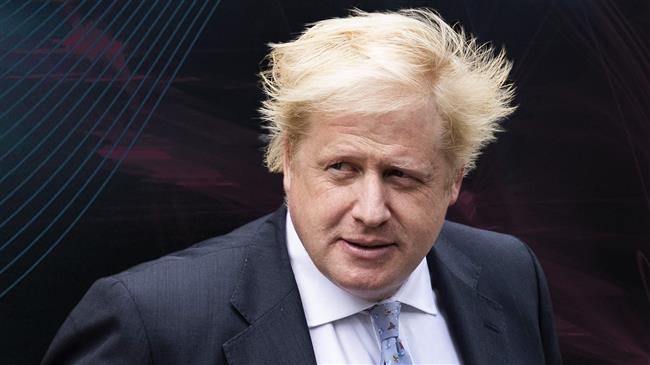Johnson in historic assault on UK democracy: Analyst
A political commentator says British Prime Minister Boris Johnson’s recent suspension of the parliament in an apparent attempt to enable a no-deal Brexit constitutes a historic assault on the country’s democracy.
Johnson suspended the legislature on Saturday after running the matter with Queen Elizabeth II. He has promised to get Britain out of the European Union (EU) — a prospect that the public voted in favor of in a 2016 referendum — with or without a deal on the future of the country’s relations with the bloc.
His move against the parliament could now enable him to bring about a no-deal Brexit that some in the legislature, especially the opposition Labour Party, stiffly oppose.
Ian Williams, an analyst with the Foreign Policy in Focus think tank, said on Press TV’s The Debate program that Johnson’s measure targeting the lawmakers was equal to “the most serious assault on parliamentary democracy that Britain has seen for centuries.”
“The queen has no constitutional power to say no where the prime minister asks something like this,” he said.
Williams said that, like US President Donald Trump, the British prime minister thinks he is “above the law and moral conventions” and could “substitute subterfuge and cleverness for actual popular support.”
Johnson’s decision triggered protests by reportedly tens of thousands of Britons, who chanted “stop the coup.” The crowds called the measure undemocratic.
Williams said the rallies were more “about whether or not a prime minister can abrogate the elected representatives of a country at his will” than whether the country should leave the EU with a deal or not.
Tony Gosling, an investigative journalist who was also speaking on the program, said the queen had the final say.
“The queen effectively is the law,” he said, adding that the monarch had had “a good look at this and said, ‘This is fine.’”
He also claimed that the protests had just been joined by around 400 people as opposed to the figure given by some media outlets.
Spain jurists demand ties with Israel ties be cut
VIDEO | Press TV's news headlines
VIDEO | Iran honors top Science Olympiad medalists
VIDEO | Austrians arrested at Gaza protest in Vienna
10 killed in bus crash in western Iran
VIDEO | One-man-band journalism with Civili
5 Israeli forces killed as Palestinian fighters face up to regime’s war machine
VIDEO | An insider's view of the country: Persian Tahini, Royan in Mazandaran













 This makes it easy to access the Press TV website
This makes it easy to access the Press TV website